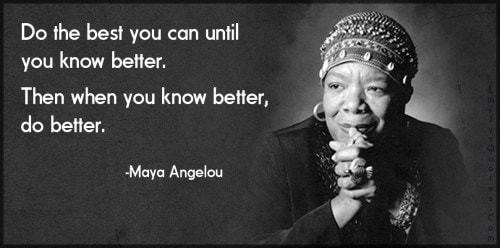 Wow, there is so much to say, and yet I don't know that I know what to say. And, as Dave can tell you, I am typically not at a loss for words. In our Episcopal church, each week, we say a litany called "Words for the Wordless". One of the last lines says, "We believe questions are more valuable than answers". I was working with some administrators the other day on how they talk with their teachers after an observation. I was sharing with them that many teachers, when talked WITH about their observation versus being talked TO about their observations, say they have never before gotten so much chance to share their thoughts. These same teachers will say things like, "This conversation really made me think." Isn't that exactly what we want? So, I shared with the administrators what we say in church----certainly not to proselytize---but to say how valuable the questioning process can be. After the death of George Floyd and the subsequent protests, demonstrations, and widespread violence, I have had the opportunity to talk with some of my dear friends who happen to be black. Scratch that---I took the opportunity and made time to talk with some of my black friends. What's the difference? I've always had the opportunity to talk with my friends who have been margianilized because of their race, color or religion. But this time, I took advantage of asking some questions. I asked questions about whether they had felt overt or covert racism in their lives. I heard stories about feeling watched when they were the only black person in a room or class of white people. I heard a story from a black teacher named Gerry who was new to a school. On the "welcome back" day, the principal stood at the door as all the teachers entered and shook hands with every white teacher. When Gerry got to the principal, the principal held up his hand in an effort to "high-five" him. Gerry held out his hand to get a handshake, just as was done for every other teacher. Did the principal overtly or consciously mean to be racist? I would guess not. But Gerry remembers this experience from years and years ago. One of my friends told me that, although she grew up quite "privileged", she still experienced racism in various "shades"----people calling her the "n" word in school, etc. I was appalled, and yet I remember being a principal in a school that was mostly filled with white children and a handful of Hispanic and Black children. The first time I heard a student tell me they had been called the "n" word, I was livid. After all, we had (for years) worked on the character traits of respect, kindness, and courage. Why would any of the students in our school say that word in the first place, much less to call another one of our "family" that horrific name? When I asked the offender, he said, "I didn't think it was that big of a deal. My dad calls the people he works with n________s". It reminded me of that song from South Pacific, "You've Got to Be Carefully Taught", in which the lyrics say: "You've got to be taught to hate and fear You've got to be taught from year to year It's got to be drummed in your dear little ear You've got to be carefully taught You've got to be taught to be afraid Of people whose eyes are oddly made And people whose skin is a diff'rent shade You've got to be carefully taught You've got to be taught before it's too late Before you are six or seven or eight To hate all the people your relatives hate You've got to be carefully taught" I get chills every time I read those lyrics, as I totally believe this is true. How would little ones ever know to show hatred for anyone whose skin color is different if they hadn't been carefully taught? I was not taught that way, as growing up in San Antonio, the skin colors of all of us were so varied, who would have been the "target" audience? But I still have black friends that say, "You may feel different from all your Jewish friends because you are Episcopalian, but people do not pre-judge you when you walk in a room since you don't have 'Episcopalian' written across your forehead." I know that to be true, as well. When someone is black, their very skin color is announced the moment they walk in a room. So, what am I called to do? I think the first thing I was called to do was exactly what I just talked about---asking questions of my friends who are black and truly listening to their experiences. I also think I am called to examine my own "white privilege" even though I have always shared that I grew up most of my life with a single mother who worked super long hours as a ward clerk at a hospital. I felt upset when she was too exhausted at night to come to most of my choir concerts or when she didn't have the extra $7 to allow me to go to an end-of-year field trip/party when I was in middle school. But really?? Is that the same as being judged from the second you walk into a store and being followed around by store employees simply because of your color? I think not. I still have a long way to go to understand my own views on these issues, and I ask God each morning to direct my thinking. However, I know for certain that I will only grow if I am prepared to feel a bit of discomfort. And, most of all, I have to honestly believe that questions are more valuable than answers. Happy Communicating, Shelly
0 Comments
Leave a Reply. |
Shelly ArnesonCategories |


 RSS Feed
RSS Feed